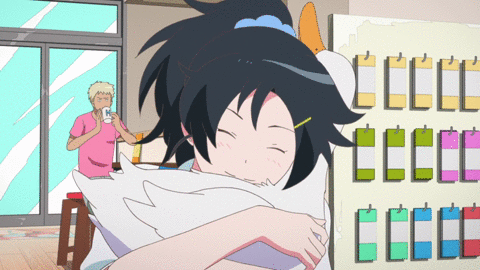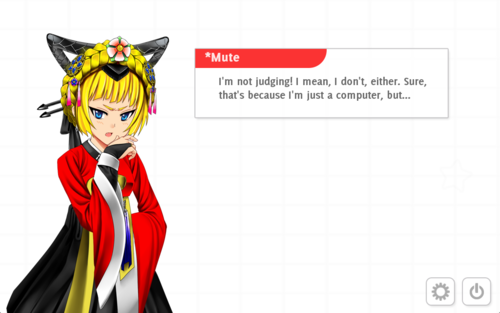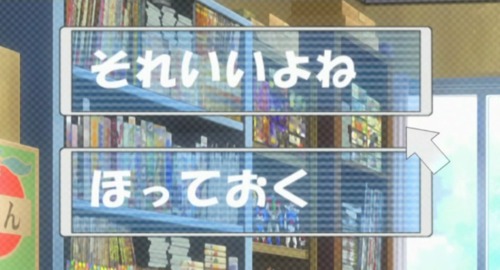Multiple-choice questions are the bread and butter of visual novels, so
much so that two action options and a mouse cursor are all you need to
make a quick “otaku view” gag. (The above screenshot is from episode 9
of Genshiken, a series that makes no bones about parodying
the excesses of fan behavior.) Yes, the choices are often misleading, or
ultimately irrelevant to the plot, but nobody really questions their
presence.
Continue reading
Remember how *Hyun-ae tries to give you the opportunity to introduce
yourself when you first log on to the ship’s computers?
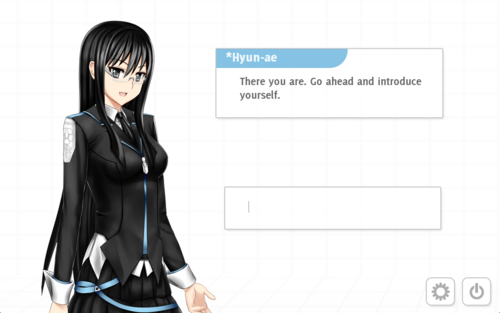
Unfortunately, millennia of isolation have apparently left her language
parsing facilities in an unusable state, and she eventually abandons
free text input for the binary questions that you use to interact with
her and *Mute for the rest of the game. Mechanics-wise, they’re no
different from any old visual novel choice system – you still move your
mouse cursor onto an option and click to proceed. The critical nuance is
that the AIs, in story, are providing you with both the questions and
the answers, and that means that the choices give you some insight into
the way they think.
Take the little interrogation that you get from *Mute after you first
boot her up. If you tell her that you’re female and unmarried, she goes
on to ask you this:
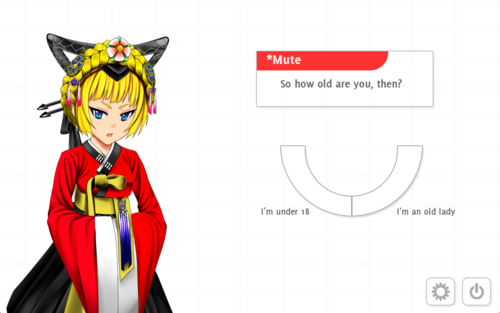
She does look and act young enough for this to be a throwaway joke on
her part, but in the context of the Mugunghwa’s neo-Joseon
society, it’s evident that her choice of possible answers means more
than that, and the logs’ various references to women getting married in
their early teens back this up. In fact, the oldest bride mentioned on
the family trees, Heo Min-jung, was just 18 or 19 years old on her
wedding day. *Mute clearly seems to expect that women be married by the
time they hit their twenties, and there’s no way to tell her otherwise.
Here’s another, subtler example. On *Hyun-ae’s paths, if you tell her
that the two of you have no chance of being together (romantically), she
pleads with you to just download her core and free her from the
loneliness of deep space:
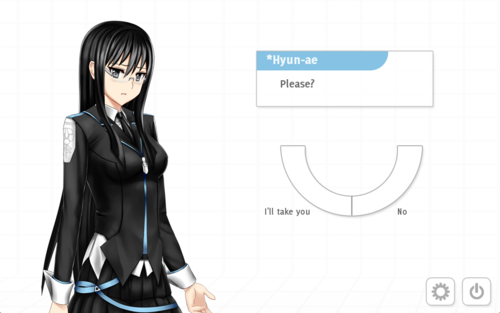
Note how much gentler the first choice’s wording is. It’s plausible that
this is a deliberate choice on *Hyun-ae’s part to discourage you from
picking the other option, by turning it into an uncomfortably blunt
one-word response. She didn’t need to persuade me, of course, but those
more cautious about bringing along someone with her history might yet be
subconsciously swayed to her side by the dichotomy she presents. Given
that she’s facing a potential eternity of isolation if she fails, I
don’t blame her for playing some mind games.
Freedom of expression, and the limitations placed on it by society and
individuals alike, form one of Analogue’s major themes. We
see this writ large in the logs, from the numerous merely unsent letters
to the horrible abuse Hyun-ae’s parents exact on her. In a way, by
calling attention to how it puts its own restrictions on your
interactions with the characters, the game brings this idea closer to
home for us as the players – the medium forms part of the message.
